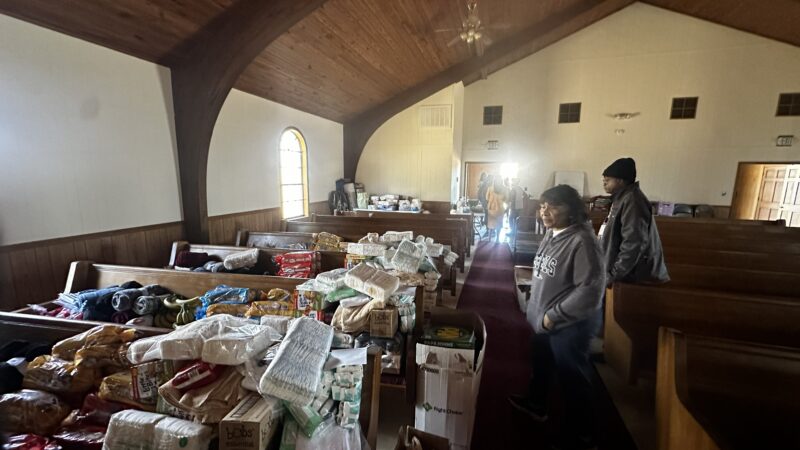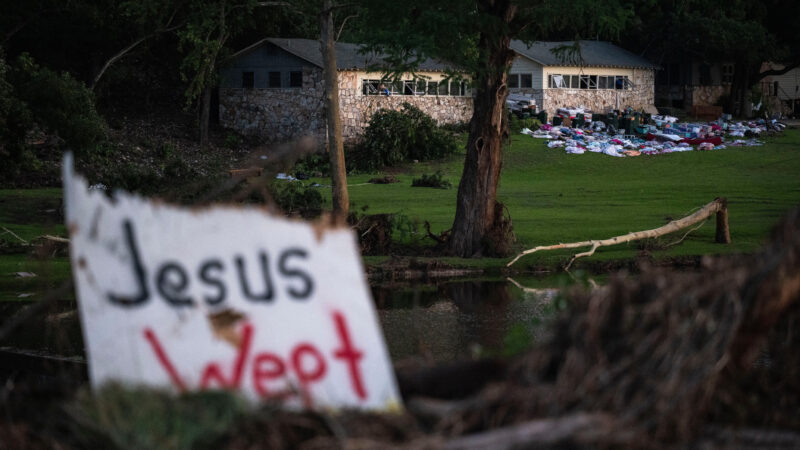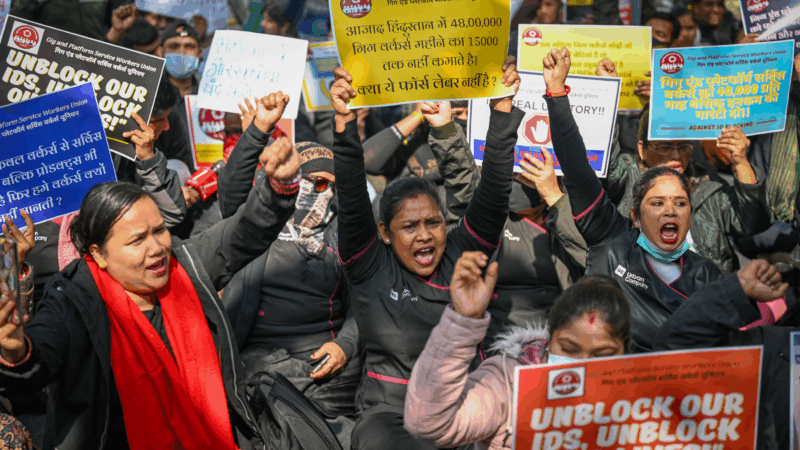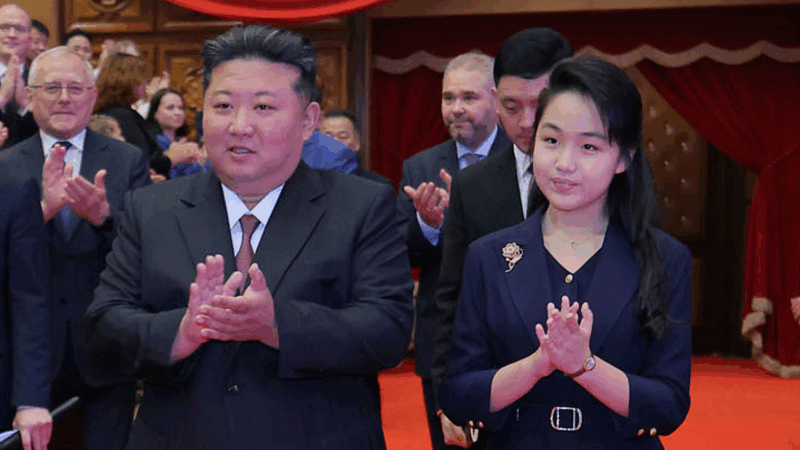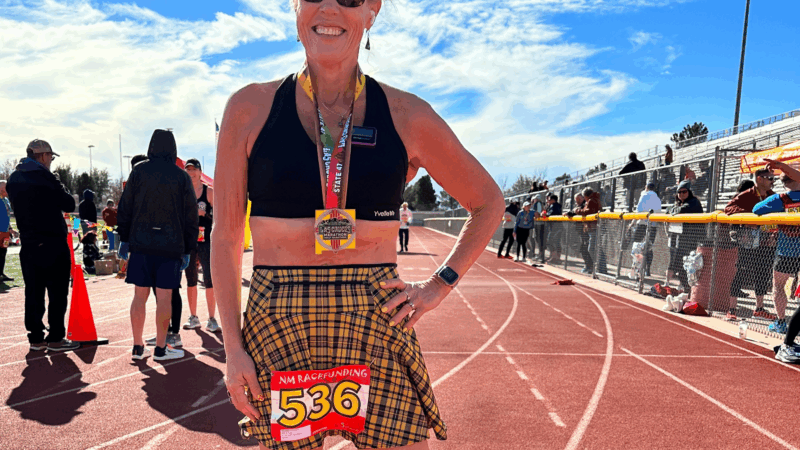Birmingham: Suburbanly Divided
This is where Birmingham meets perimeter, where the city’s tentacles extend deep in its metropolitan area.
It is a success story for Birmingham. The city annexed the land years ago, and is now collecting taxes from the dozens of stores and restaurants that encompass the behemoth Summit shopping complex.
But it is one of only a handful of success stories in a myriad of battles. And now the city is swallowed whole by a periphery of smaller cities that have an agenda all their own.
“There are certain aspects of our civic character here in Birmingham that are just engrained as a result of the way this community developed as a one industry town. Very paternalistic, colonialist mentality.”
Mark Kelly is a freelance writer and former advisor to Birmingham Mayor Bernard Kincaid. He says the tumultuous early days of the so-called Magic City stuck – the days of people pitted against one another.
“Very striking dichotomy between rich and poor, between labor and management, business the business community and government… between black and white. And those dichotomies have shaped the way that we as a city and community deal with problems.”
Many of those tensions date back to the early iron and steel days of old Birmingham and its tens of thousands of U-S Steel employees. Kelly says the city is unique in America with the way it was founded and developed because of its roots as a one industry town.
Cities that developed over time around Birmingham competed against it for jobs and industry. A sort of sibling relationship, without the warm and fuzzy family holiday.
But over the years, the area has acclimated – begrudgingly – to the economy, to a changing workforce and, of course, and most infamously, to civil rights. But the fierce municipal battles continue today.
“We haven’t had anybody, we haven’t had any government who’s sort of taken a regional approach to any of this.”
Dr. Bob Corley is Director of the Global and Community Leadership Honors Program at UAB.
“We don’t make any effort to try to pull together, to cooperate, to try to build any kind of sense of community. (Well, there have been initiatives that’ve taken place over the years: the “One Great City” and the merging of Birmingham with Mountain Brook and Homewood) Well everyone of those efforts has been thwarted or shipwrecked on the shores of racism or class prejudice. Folks think that they’re going to lose something that’s – for them – rather important if that were to happen. That they would lose some control over their own destinies.”
“Part of Birmingham has always been inner city and suburban. Before that in the legislature, it was rural against Birmingham, big bad Birmingham, had to fight Birmingham. The division has just been there and it’s hard to get over.”
Former Birmingham Mayor Richard Arrington sees it as a city-suburban chasm, this idea that politicians in smaller cities and surrounding counties have no interest in what happens in Birmingham – and more importantly don’t want anything to do with it.
“…because you’re asking most of them to take a stand that’s going to be very unpopular in their area. So we’d rather build ten small civic centers the size of this room where you could have 100 folk at a convention than build one huge one where it would promote the whole area and compete for big conventions. Things would happen but we don’t see that.”
Arrington says he left city hall -quote- broken hearted, because of divides within the city and with the suburbs. He says he took a big hit with the failure of the MAPS proposal, the Metro Area Projects Strategy that included a dome stadium, mass transit and other regional matters.
And the city population continued to shrink under Arrington’s five terms – something that’s been happening for the better part of five decades.
The city of Hoover collected many of the people who left Birmingham. Now with a population of more than 70-thousand, it is the state’s sixth largest city.
Its current mayor, Tony Petelos, is a former state legislator and former member of the Jefferson County delegation – which represents the county at the statehouse. Petelos says there isn’t a better example of a divide than this group of 18 lawmakers. He says his time in Montgomery as part of the delegation was plagued by in-fighting and disorganization.
“Unfortunately, the Jefferson County delegation was not in sync or on the same page, so therefore we were left behind in many cases. The Jefferson County delegation was evenly divided among 9 whites, 9 black legislators; 9 Republicans, 9 Democrats. So it was very divided.”
“It’s hard to get them to agree on whether the sun is shining sometimes, much less ‘here’s a project that all of us can support’ or ‘let’s try and get this through the legislature’ or ‘let’s try and get the governor’s support.'”
Bob Blalock is Editorial Page Editor of The Birmingham News. He covered city hall for years and watched the antics in Montgomery hurt the Birmingham region.
But he says there have been bright spots lately.
“You know we did see an example of some cooperation last year, in this most recent session, when there was increased funding for UAB included in the budget. And there was a situation where you had the legislative delegation on board, the mayor on board, the city council on board, the business leaders on board. And it made a difference.”
The lawmakers, Blalock says, worked together because they knew it was in the region’s best interest. Another bright spot is the fact that state lawmakers and municipal leaders in the region have been meeting over the past year and discussing regional issues.
But Blalock reiterates that that’s more the exception than the rule.
And most times, nothing gets done. Again, former Mayor Richard Arrington.
“We do things backwards… it’s crazy. I mean, it makes no sense.”
Bob Corley says he’s constantly reminded about what an increasing number of school systems and dozens of surrounding cities and hundreds of politicians running in different directions – away from Birmingham – are saying.
“What the suburbs are saying is ‘what happens in Birmingham, happens in Birmingham’. That’s not the reality. The reality is that we are all – as Martin Luther King said – entwined in this same network of shared destiny. We work across city lines, we travel across city lines. The community itself incorporates all of that. And we’re better off if we can figure out a way to join together and have a common destiny as opposed to fragmented destinies that by thinking we can hang on to what we got by maintaining that. It’s an unrealistic expectation.”
Unrealistic because history has proven it. A city that began as a powerhouse is turning into an area that is powerless. No cohesion, certainly no trust, and no way of changing it for now.
Time after time, the people we talked to throughout our series – throughout the tour of regional challenges – talk about leadership. That there is a lack of it here, and that what there is of political and corporate and civic leadership need only come to the table to ultimately be dismissed.
Historians say it is a problem that’s plagued this area since the beginning with no signs of ever letting go.
Community organizations step up in Gulf South winter storm recovery: ‘The need is so big’
After January's winter storm, the Oxford community has come together to take care of those in need — not just while waiting for other responders, but also fill persistent gaps.
Camp Mystic parents from Alabama seek stronger camp regulations
Sarah Marsh of Birmingham, Ala. was one of 27 Camp Mystic campers and counselors swept to their deaths when floodwaters engulfed cabins at the Texas camp on July 4, 2025. Sarah’s parents are urging lawmakers in Alabama and elsewhere to tighten regulations.
Court rebuffs plea from domestic workers for better pay and respect
They're often paid low wages and lack job protections. A petition to the country's supreme court to support their demands did not see success — and they are protesting.
Spy agency says Kim Jong Un’s daughter is close to be North Korea’s future leader
Seoul's assessment comes as North Korea is preparing to hold its biggest political conference later this month, where Kim is expected to outline his major policy goals for the next five years.
Using GLP-1s to maintain a normal weight? There are benefits and risks
Drugs like Zepbound and Wegovy are intended for people who are overweight. Some patients are using them after bariatric surgery to keep pounds from creeping back. Others may just want to lose a few pounds.
Jordan Stolz opens his bid for 4 golds by winning the 1,000 meters in speedskating
Stolz received his gold for winning the men's 1,000 meters at the Milan Cortina Games in an Olympic-record time thanks to a blistering closing stretch. Now Stolz will hope to add to his collection of trophies.

